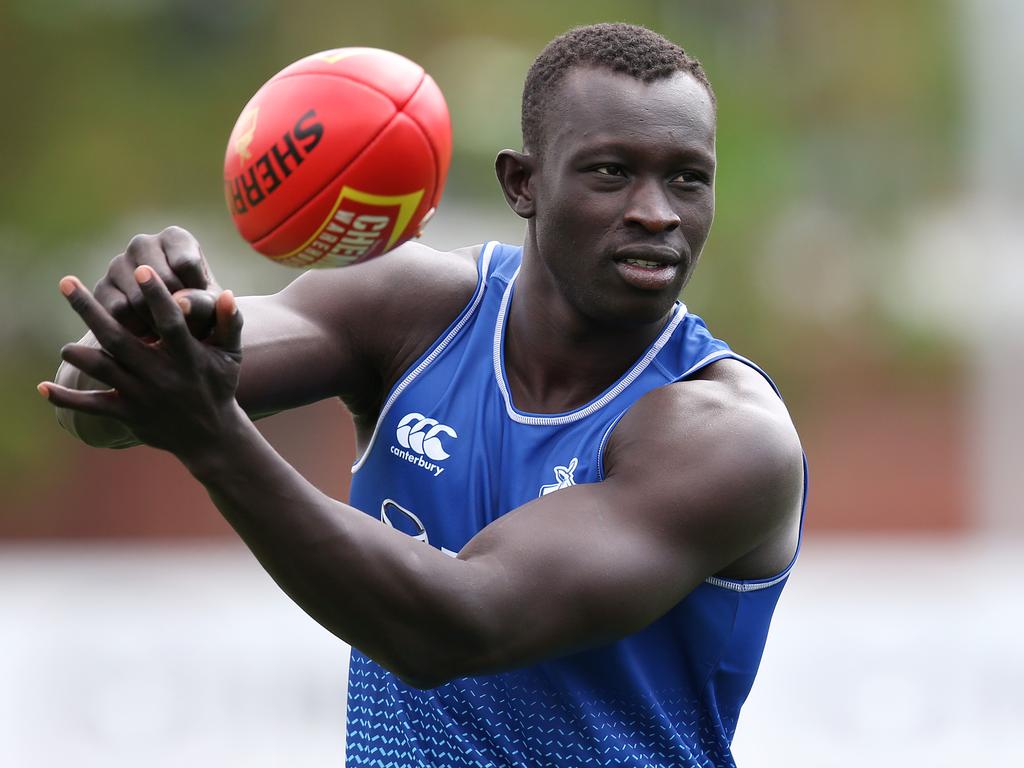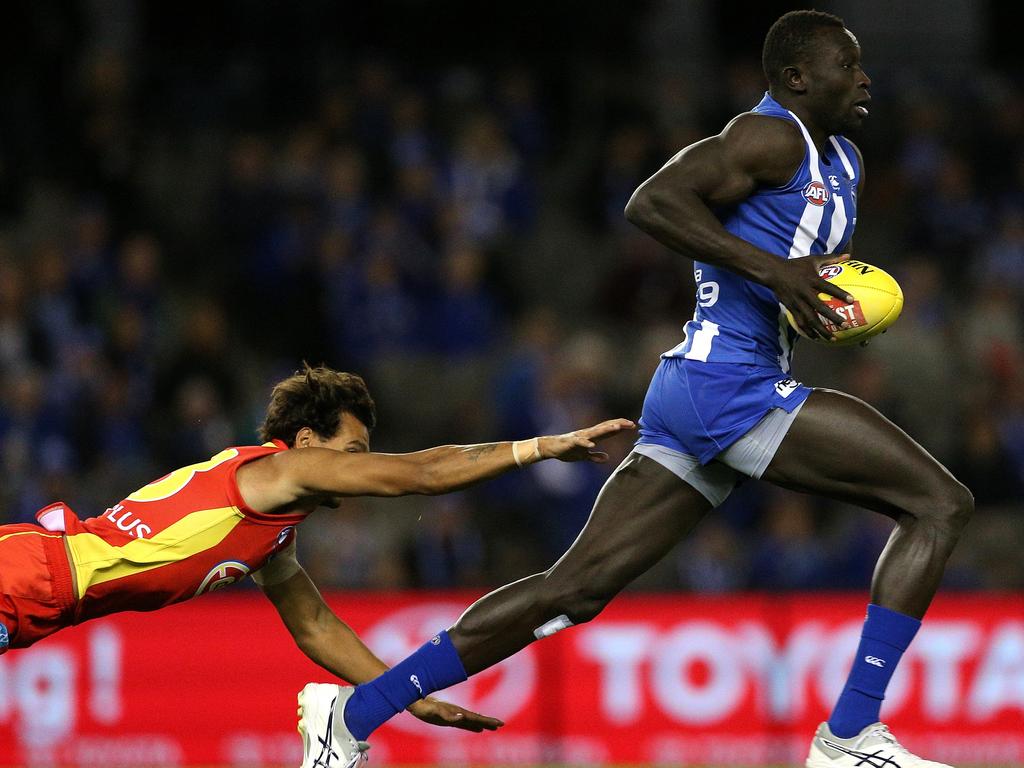Majak Daw releases statement after bridge incident
AFL star Majak Daw has broken his silence for the first time since being rescued by emergency services under a Melbourne bridge.
AFL star Majak Daw has broken his silence after he fell from a Melbourne bridge last month.
The North Melbourne player released a letter to fans on the Kangaroos website thanking people for their support and saying his outlook on life has “improved”.
He also mentioned his desire to get back on the footy field.
“To all our beloved fans and members, I just wanted to thank everyone for their love and support over the past month,” Daw said.
“The circumstances surrounding my incident have been extremely challenging for my family, friends and anyone that knows me for that matter.
“I’m making huge strides with my recovery, both physically and mentally.
“I have been blessed with a second chance at life.
“My attitude and outlook towards everything has improved.
“I hope to be back out there playing in the blue and white stripes soon.
“Thank you all for respecting my need for privacy and for giving me the chance to get better going forward.”

Daw fell from the Bolte Bridge in December and was found by Victorian emergency services at the edge of the water of the Yarra River. His car was found at the top of the eight-lane bridge and he broke his hips and pelvis in the fall.
He was taken to hospital where he was recovering from those injuries.
Daw had not been training with his North Melbourne teammates this pre-season as he continued to recover from ankle surgery in September.
He carried a fractured foot injury through most of last season and the club initially expected Daw to make a full return to training with teammates on January 14 after the Christmas break before the incident.
Since joining the Kangaroos, Daw has become a key figure in the AFL and the local community.
As an AFL multicultural ambassador, he has spoken out against racism and is widely considered a role model for aspiring young footballers.

Having fled war-torn Sudan, Daw and his family moved to Australia in 2003. He was selected by North Melbourne at the 2010 rookie draft and became the first Sudanese-born player to make an AFL debut when he played his first senior game against the Brisbane Lions in round four of the 2013 season.
The 195cm utility struggled to establish himself as a regular player at the elite level until the 2018 season when he enjoyed a breakout campaign. Having played predominantly as a forward and a ruckman, coach Brad Scott switched him to defence where he flourished, making 18 senior appearances to reach his 50-game career milestone.
DAW’S INCIDENT PROMPTS CALLS FOR ACTION
After the incident involving Daw, North Melbourne legend Wayne Schwass criticised the AFL over what he said was a failure to combat mental health issues rife in the game.
Schwass made a desperate plea for the AFL to lift its commitment to addressing the mental health of its players just hours after Daw was rescued by emergency services.
The founder of mental health advocacy enterprise Puka Up took to Twitter to express his dissatisfaction at the AFL’s efforts to improve mental health awareness across the footy community.
At what point will the AFL industry come together to begin to seriously address the issue of mental health?
— Wayne Schwass (@WayneSchwass) December 17, 2018
Surely, that point is TODAY/ NOW!!
Fortunately the outcome of today’s event wasn’t more tragic.
A very serious wake up call our industry needs to get serious!
Most recent AFL player survey listed mental health as the NUMBER 1 concern/ issue across the entire playing body!
— Wayne Schwass (@WayneSchwass) December 18, 2018
Not money, not opportunities, not retirement, MENTAL HEALTH!
It’s time we listened to their collective voices & prioritised their mental health!
Earlier in 2018 the AFL and the AFL Players’ Association announced a commitment to increase its financial commitment to mental health programs and initiatives to $900,000 across the 18 clubs.
The funds will see the grant given to each club via the AFLPA increase to $50,000 per club in 2019, for programs designed to improve the emotional wellbeing of AFL footballers.
If you or someone you know is in crisis or needs support, call Lifeline on 13 11 14 or BeyondBlue on 1300 224 636. If it is an emergency, call triple-0



